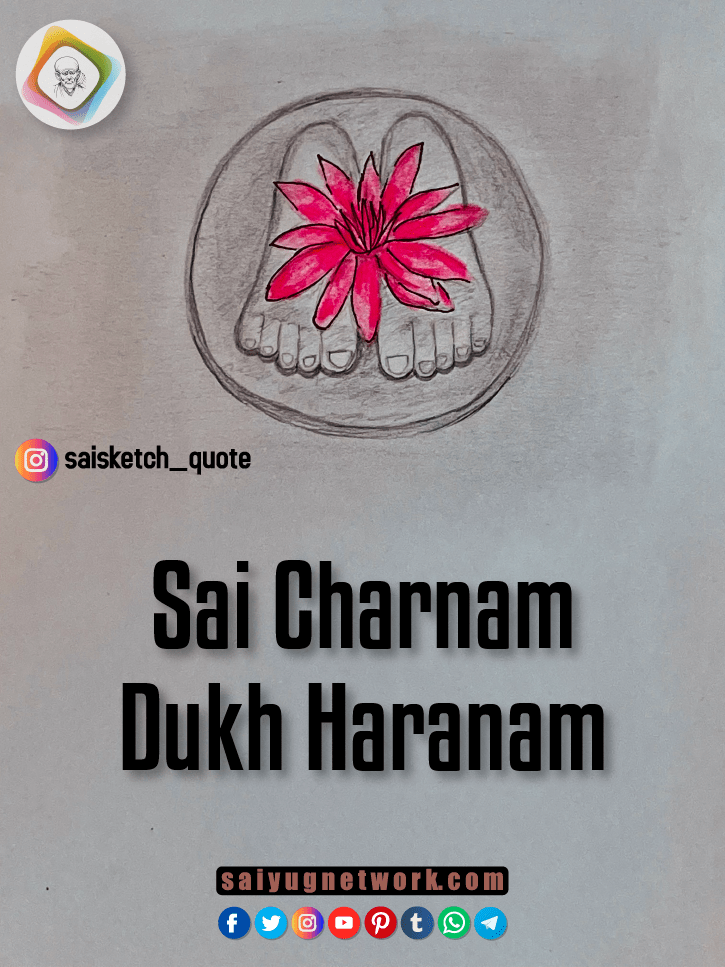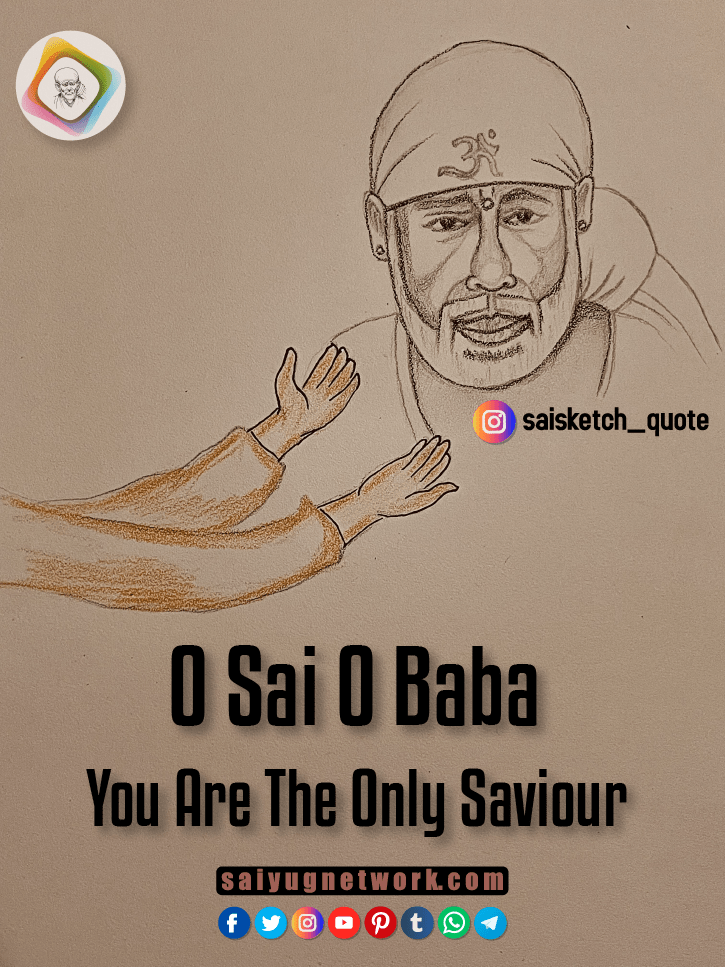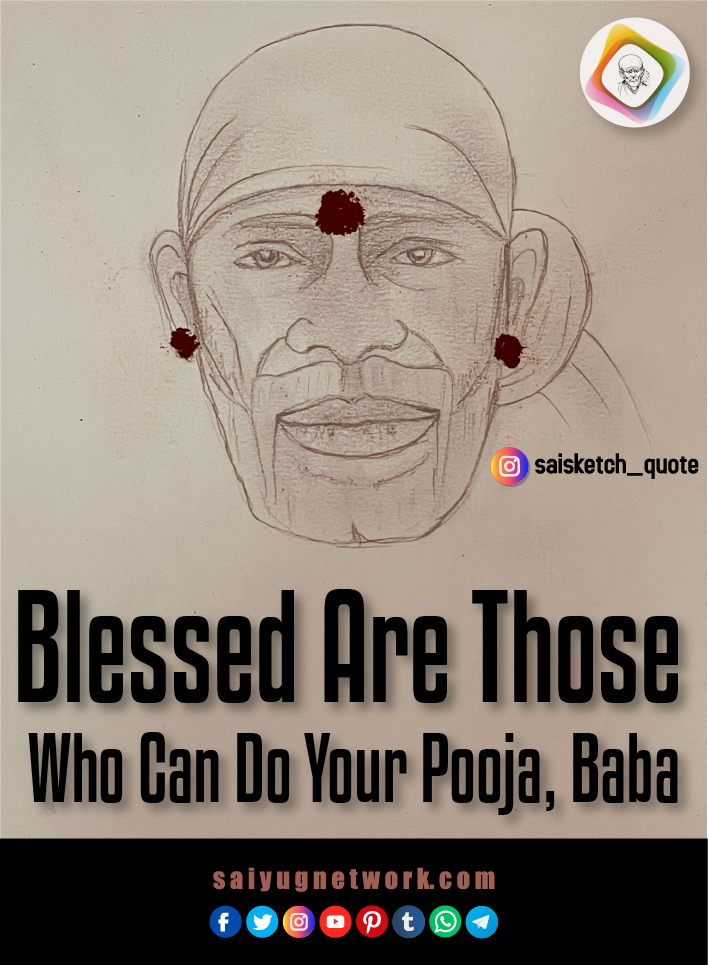Previously Posted
| Chapter No | Part No | Contents of the Chapter |
|---|---|---|
| NA | NA | Note By G.P.Sinha |
| NA | NA | Publisher’s & Translator’s Note |
| NA | NA | Foreword |
| NA | NA | About The Author |
| NA | NA | Preface |
| NA | NA | Introduction |
| Chapter 1 | Part 1 | Our Anna |
| Chapter 1 | Part 2 | Our Anna |
| Chapter 1 | Part 3 | Our Anna |
| Chapter 2 | Part 1 | Arrival Of Sai Baba In Shirdi |
| Chapter 2 | Part 2 | Arrival Of Sai Baba In Shirdi |
| Chapter 3 | Part 1 | Shama |
| Chapter 3 | Part 2 | Shama |
| Chapter 3 | Part 3 | Shama |

CHAPTER 4
Baba’s Dakshina
Saints are those who surrender everything to God. They are the oceans of bliss! To have darshan of a saint is a festival of joy and happiness to common man. To meet any such saint and have an opportunity to interact with Him is a sacred occasion that can be called, ‘Dawn of realization and bliss in the heart‘.
Shirdi had become ‘Dwaravati‘ for the devotees, because Lord Krishna had appeared there, in the form of Sai Baba, staying in Dwarkamai. His name and fame had spread all over like wild fire. Masses started visiting Shirdi to see Sai Baba, to have a word with Him and be happy. They wanted to remain immersed in love and devotion.
One thing always puzzled all devotees. Baba used to ask for ‘Dakshina‘. What was His intention behind it? That only He knew. But devotees had a very strange feeling about it. What is Dakshina? It is of two types. One is worldly or material and the other is spiritual. It is customary that, when we go for darshan of a Guru or a King, we should not go with empty hands. We should take along something as an offering, such as, coconut, bannanas or other fruits, or some sweets, sugar crystals etc. This is a material dakshina. When Guru initiates the disciple by secretly saying a ‘mantra’ in his ears, the disciple has to offer some dakshina in the form of money. This is a spiritual Dakshina.
In the beginning, when Baba came to Shirdi He never used to ask for anything or nobody used to give Him anything. He was treated only as an insane fakir. His needs were too meagre to ask for anything. Usually, He sat in the masjid on torn sackcloth. A Kafni, one earthen plate and a tin mug were His entire belongings. He would go to five different houses everyday for alms and thus maintained Himself. Chillum, tobacco, wood for fire and oil for lamps were His few necessities. Those, He managed to borrow from the village people. He never needed money.
After a period of time, when people understood His value, they realized that He was an Avaliya, who appeared in their town, which was a matter of fortune for them and they should get benefited by that opportunity. Many dignified people also started coming to Baba. When others heard from them, the crowd began to increase. There were all sorts of people without discrimination of caste, creed and religion. They all came for Baba’s darshan. At this point, Baba started asking for Dakshina.
His demand for it was very strange and beyond any logic. All devotees were not asked for money. If someone offered money voluntarily, He might or might not accept it. He accepted dakshina from few particular devotees only. Many devotees wished that Baba should take offerings from them. But the playful Avaliya would not ask them! Even if they tried forcibly to give Him money, He would throw it back to them. And when He wanted dakshina, He would ask anybody, without making any discrimination; man, woman or children, rich or poor, or anybody. His behaviour regarding this was inscrutable.
Author of this book, Dr. Gawankar, was fortunate that Baba had demanded dakshina from him. But what was the amount? It was two ‘paisa’ in those days. But there was no actual transaction. The author had only to say ‘Diya’ (given) and Baba said, ‘Liya’ (taken).
Whatever dakshina He took, was never for His own sake. He would distribute all the amount that was collected amongst the devotees. To some He would tell to keep the given coins in their shrine and worship them daily. His daily collection was Rs. 400/- to 500/-, But He never spent a single ‘paisa’ on Himself, as the entire amount would be distributed. Sometimes He used to buy fruits like bannanas, guavas, custard apples or mangoes and distribute among those who came for darshan. By evening He would finish off all the collected amount. This was the story of ‘Dakshina’. This routine went on continuously till the day of His ‘Samadhi’.
The Lord of the universe came to Shirdi and got embraced in the love of His devotees. Baba used to take dakshina from people, but He used to test them hard for their sincerity and their faith. He would judge if one was giving it without pain or with hesitation. He would test whether the person did or did not have attachment for money, at least partially, if not fully. That must be the intention behind His asking for dakshina. He wanted to teach people an important and a noble principle of life. “Nobody gets anything without giving something”. That was the lesson given by Him. In the previous incarnation Lord Krishna also, had asked for something to eat, when Draupadi was in difficulty. Only when she gave Him a basil-leaf to eat, He helped her in feeding Durwas Rishi and his thousand disciples.
Famous stage-actor of that time, Ganapatrao Bodas, was also asked for dakshina. He gave some from his wallet. Baba demanded more and still more. At last he emptied his wallet fully; and he was not at all sorry for it. In his biography Bodas later wrote, “I never was short of money in my life, after giving dakshina to Sai Baba. What else could it be, other than His loving grace?”
Noble prize winner Rabindranath Tagore writes in one of his poems from ‘Gitanjali‘, a story of a poor man. In brief, it runs as follows. The poor man in his first person singular says, “I am a poor beggar. I was wandering through the streets and lanes, begging for alms”. Suddenly I saw a marvel. A great royal person came in his grand and beautiful chariot. I thought him to be Swami, a master. I felt ecstatic with the thought that he would oblige me and I would no more remain a poor man thereafter. I saw grains and cereals we being thrown away. Everyone, who got a chance to collect, was doing according to one’s capacity. To my surprise, the chariot came and stopped in front of me. Swami alighted with a smiling face. I forgot my agony on seeing his cheerful, radiant face. I was in a receiving mood. But something contrary was happening. Swami stretched his hand towards me and said, “Give me some dakshina“.
“Wondering at his gesture”, I said, “Swami, you are mocking at me! What can a poor beggar give you? It is ridiculous.”
But he did not withdraw his hand. Helplessly, I took out a small particle of grain from my torn bag and put it in his palm. “Disheartened, I went home and removed the bag from my shoulder. To my astonishment, I saw a sparkling light emitting from it! I emptied the bag on the floor. I found one grain had turned into gold! A particle that I had given to Swami had come back to me in the form of a gold grain. Alas! If I had given everything that I had, to Swami.”
The poem conveyed the noble message of giving! Those who had given their everything to Baba had “received” Baba Himself! Baba lived in their hearts.
OTHER TYPE OF DAKSHINA- GURUDAKSHINA
Many people started coming to Shirdi, with different intentions in their minds such as solving their problems and expressing their reverence. Mr. Sathe was one of them. He was a person of conviction. Unfortunately he had suffered a great loss in business. That was why he had developed a sort of aversion for life in total. Some of his friends suggested him that he should go to Shirdi. Accepting it, he came and surrendered at Baba’s feet. Unexpectedly, his mind and inner conscience became calm when he took Baba’s darshan. His worries disappeared. He started reading ‘Sri Guru Charitra‘, with a seven days plan. Baba was attracted and bound by Sathe’s pure love. If the inner stream of love is very strong, then the devotee does not have to wait for long, for the Divine Love.
Sathe finished the reading of the scripture (Guru Charitra) on the seventh day, as per his plan. During the following night Sathe saw a divine dream. He saw that he was sitting in front of Baba who was reading Guru Charitra and explaining the implied meaning to Sathe. He was completely absorbed in Baba’s elucidation.
When he came out of his dream, he felt so happy that his throat choked with emotions of love. He talked to himself inwardly. Baba, we are the people who are sleeping over our ignorance. Therefore we are sinners. But You are so kind to us! You wake us up and give us knowledge. You explained Guru Charitra to me! Is it not the realization for me? You have given me the taste of ambrosia. I would love to experince and enjoy the unalloyed bliss at Your Lotus Feet forever.
Next day, Sathe told Kakasaheb Dixit about his dream, and asked for his interpretation. He requested him to seek Baba’s guidance. On proper opportunity, Kakasaheb talked to Baba about Sathe’s dream. Baba instructed him to read the same scripture once again. Baba said, “Because of reading Guru Charitra, all the impurities will be washed away and The Lord will be pleased with his purity. It will help him (Sathe) to attain detachment”.
While this conversation was going on, Annasaheb Dabholkar (Govind Raghunath Dabholkar) was busy in service of Baba. (Doing Padasamvahan). He was keenly listening to what Baba said. A faint feeling of jealousy ran through his mind. He thought, ‘Sathe has read Guru Charitra just for seven days, still he is enjoying its fruits! Baba has showered His grace upon him immediately. And I am doing ‘parayanas’ (reading) for last forty long years! But it is all in vain. I am yearning for those showers since very long. When will Baba be as kind to me, as He is to Sathe?
At that very moment, omniscient Baba read Dabholkar’s mind. He said to him (Annasaheb), “Hemad, (this was Dabholkar’s third name) right now you go to Shamya (Madhavrao Deshpande) and bring fifteen rupees from him. Tell him I want it as a dakshina. Be in his company for some time and then return back”.
Baba did not show any hostile reaction about Dabholkar’s monologue, but He sent him to Madhavrao with some intention. In a way, that was a manifestation of His grace on him. When Hemadpant Dabholkar reached Shama’s house, he had finished his bath and he was chanting some divine verses (Shlokas). He was surprised to see Hemadpant who had come to him, somewhat unexpectedly. He welcomed him and said, “Please wait for sometime. Help yourself with these beetle-leaves and nuts. I will finish worship of home shrine in five minutes and come back. We can talk leisurely then”. And he went inside.
A sacred book of ‘Eknathi Bhagwat’ was lying there. Hemadpant picked it up casually and opened a page. It was the same page where he had left reading that very morning. It was his regular practice to read that book everyday. But that day, there was an interruption. People were going to Dwarkamai; so he left reading halfway joined them. Now he understood why Baba had sent him there. He started reading from the very line he had left and completed his everyday practice.
© Author – Dr. Keshav Bhagwant Gavankar (Annasahib Gavankar) – Explicit Rights To Publish To Shirdi Sai Baba Books.com (Member of SaiYugNetwork.com)




Love you Deva! Jai Sai Samarth!